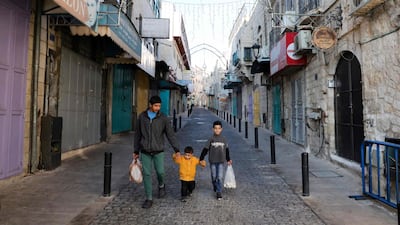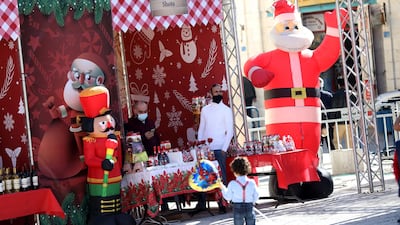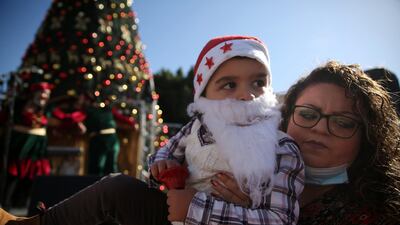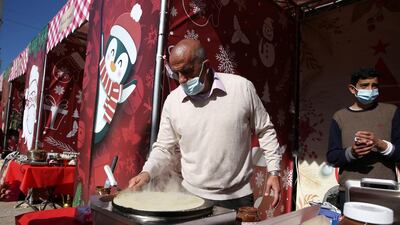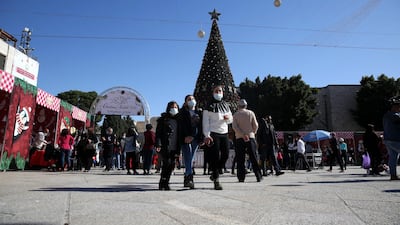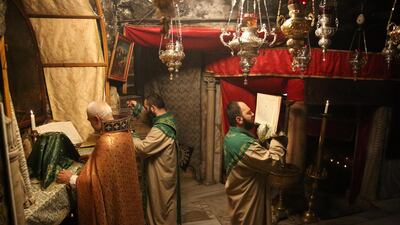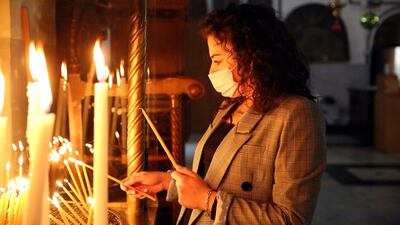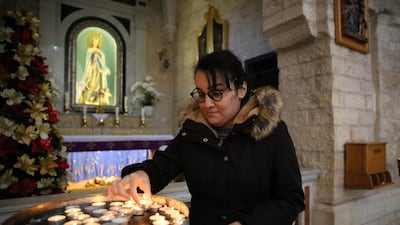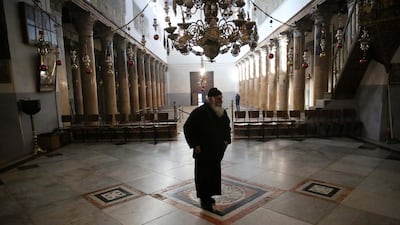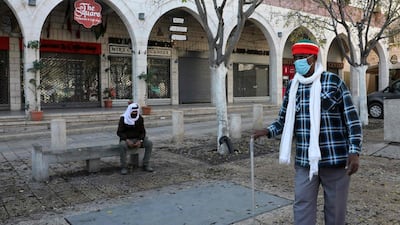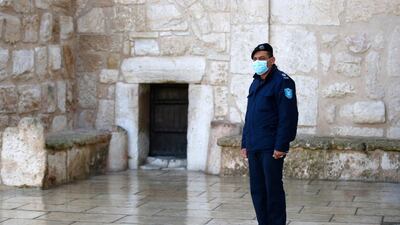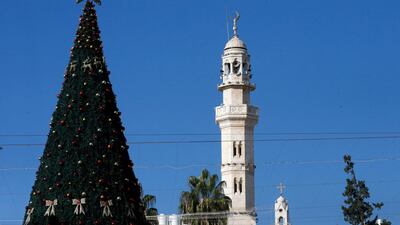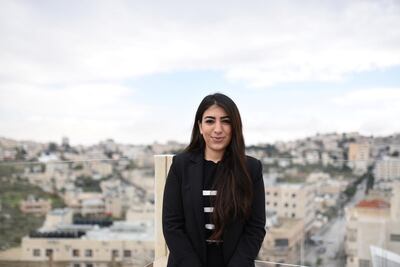With pilgrims banned from Bethlehem in the occupied West Bank, Palestinians already reeling from the pandemic are facing a lonely Christmas in the birthplace of Jesus.
Bethlehem was thrown into turmoil in early March, when a travel agent called the Angel Hotel to say that recent Greek guests had returned home with coronavirus.
“The hotel was full, I also had 45 rooms checking in that day,” said Mariana Al Arja, general manager of the family-run hotel. “It was a mess.”

The outbreak led pilgrims to flee Bethlehem, except for a group of American guests at the Angel who were quarantined with hotel staff.
“I stayed in my office for 14 days. I had the cameras in front of me, I slept on the couch and I stayed in contact with the people who were working here,” said Ms Al Arja, who caught coronavirus with more than half the hotel staff.
While the hotel entrance is devoid of festive decorations this year, a Christmas tree was erected beside Bethlehem’s Church of the Nativity where Christians celebrate the birth of Jesus.
"We will send a message to the world and to everybody, that Christmas will never be cancelled," Bethlehem's mayor, Anton Salman, said this month.
Over the festive period thousands of visitors usually stroll around Manger Square, where a Christmas market is set up.
But it is open only to Bethlehem residents because people living elsewhere in the Palestinian territories and Israel are banned from visiting under new measures announced by Palestinian Prime Minister Mohammad Shtayyeh on Thursday.
More than 130,000 tourists travelled to Bethlehem last December, according to data from the municipality, while the total number of visitors topped 1.5 million during 2019.
Coronavirus has killed 1,016 people in the West Bank, World Health Organisation data show, in a Palestinian population of more than three million.

Christians are being encouraged to tune in online to watch events in Bethlehem, while Midnight Mass at the Church of the Nativity will be attended only by clergy on Christmas Eve.
“Never, in our life, as Palestinians, will we celebrate Christmas in sadness,” said the mayor, who caught coronavirus last month. “We are always optimistic for a better future.”
But he admitted the pandemic had taken a significant toll on local businesses, estimating more than 200 souvenir shops have closed along with nearly 70 hotels.
Standing in a quiet Manger Square, mosaicist Khaldoun Balboul pointed to the shuttered shops and restaurants.
“If you look around, they all have relationships with tourists. If there are no tourists, they don’t have work,” said the 40-year-old, who has been shipping mosaic art abroad and running workshops during the pandemic.
Because the Palestinian Authority does not operate as a fully-functioning state with access to international financial markets, it has been unable to provide the economic support which other governments have offered their citizens.
At the Angel Hotel, the 25 employees received their salaries for March and April before being handed severance pay.
Ms Arja, 33, said she had received no financial help and has been indebted by the cost of adding a floor to the hotel, a decision taken when the local tourism industry was thriving.
“The occupancy rate in Bethlehem was above 90 per cent” when the pandemic hit, she said.
“We were coming up to the Easter season, all the hotels were overbooked.”
Rooms at the Angel now sit empty, with chequered bedspreads and towels piled up in the bathrooms.
Over the past few months, Ms Arja has completed the expansion, carried out a deep clean of the hotel and begun preparing for it to reopen. New health protocols will be in place, such as an end to the buffet service.
But it is unclear when tourists will return, because Israel, which controls access to the West Bank, has imposed a ban on foreign visitors since March.
“This is Bethlehem, it’s the place where Jesus was born, so it’s all about celebrations and gatherings and tourists. It’s really sad to see it empty,” Ms Arja said.
With so many residents reliant on work from tourism or industries that support the sector, the absence of visitors this Christmas is being felt across Bethlehem.
“I don’t think we can go on, I think people are struggling now,” said Ms Arja, who has packed boxes with the hotel’s remaining food supplies ready to donate.
“I really have no idea how people will survive.”
